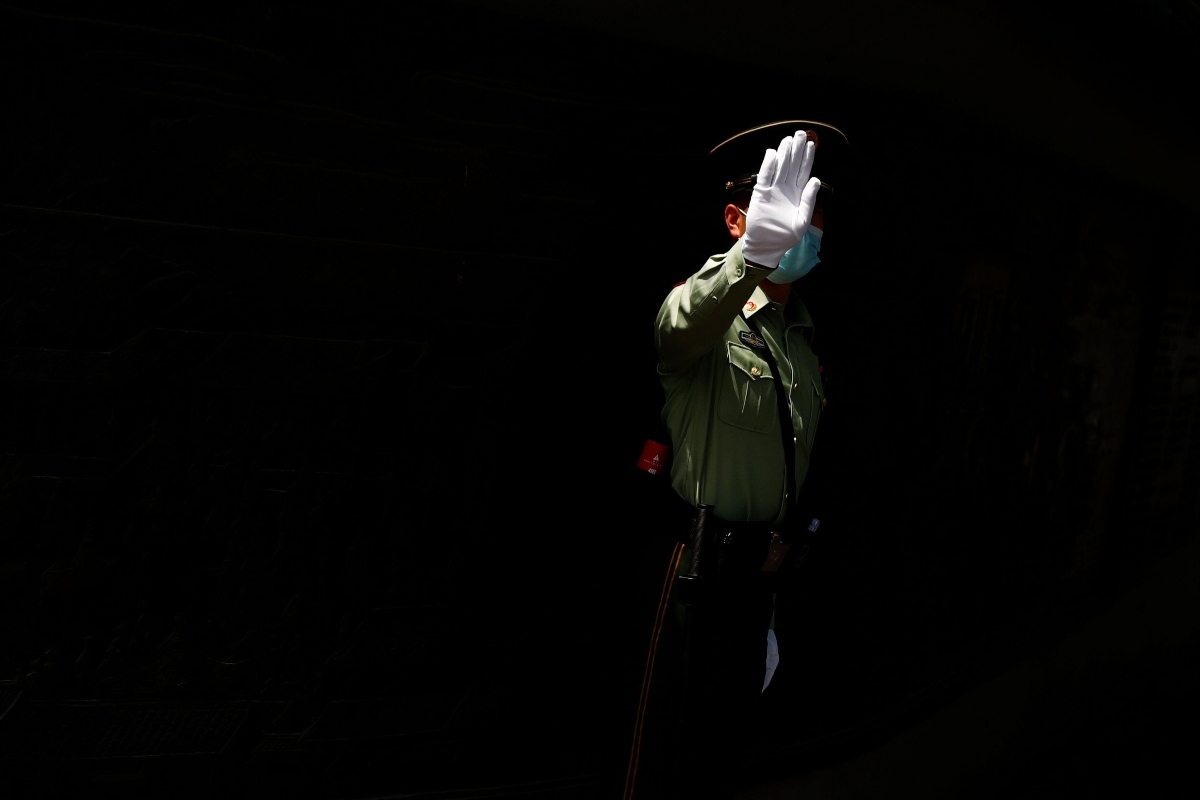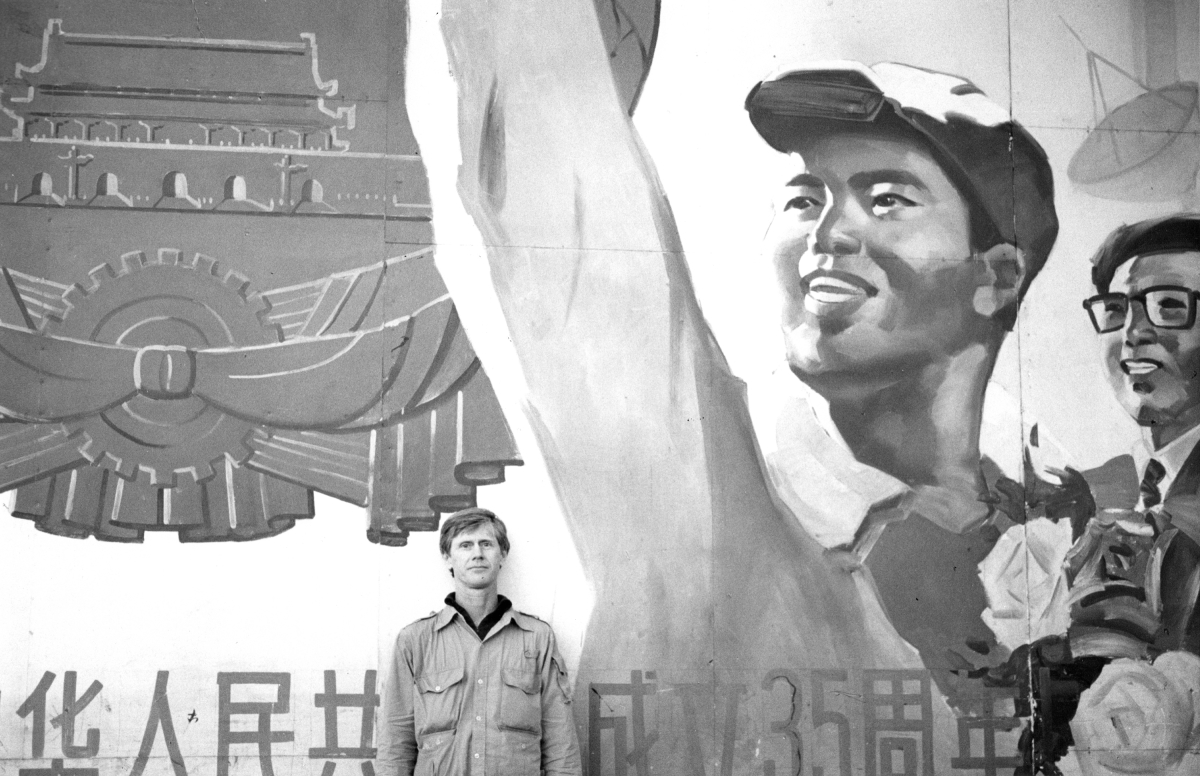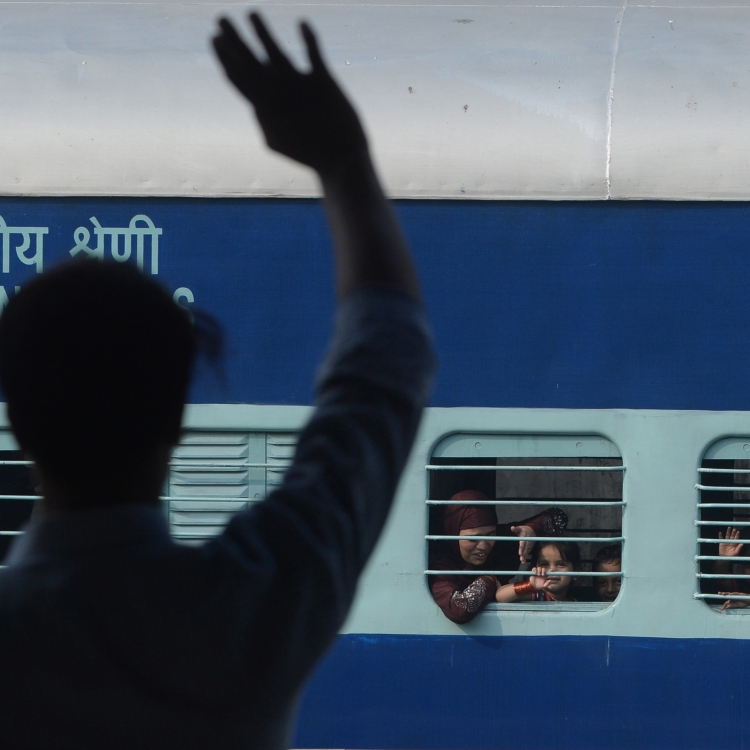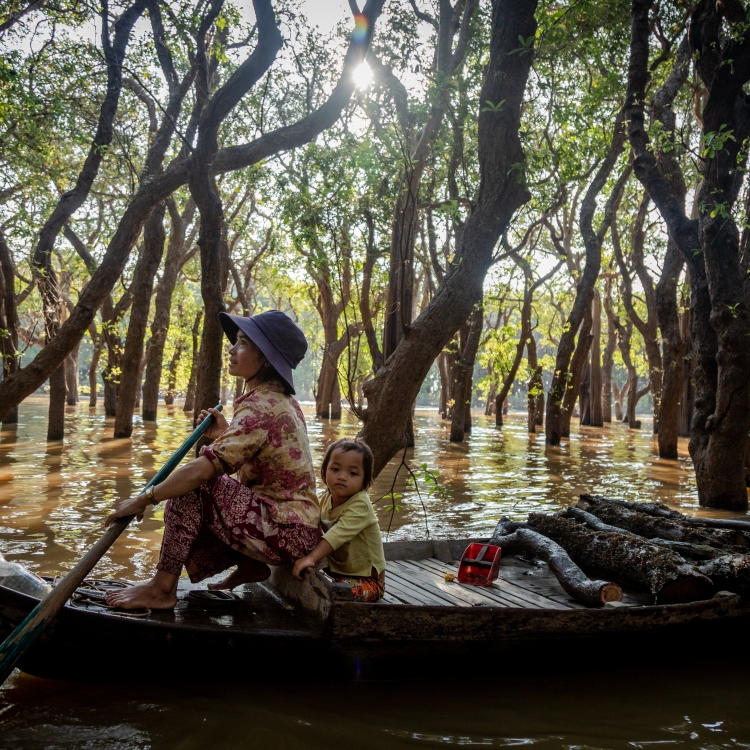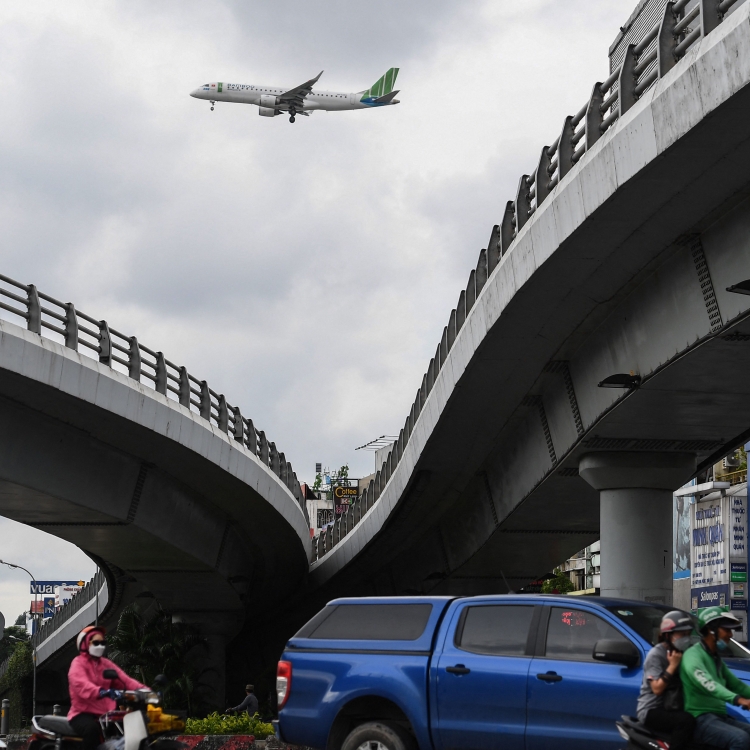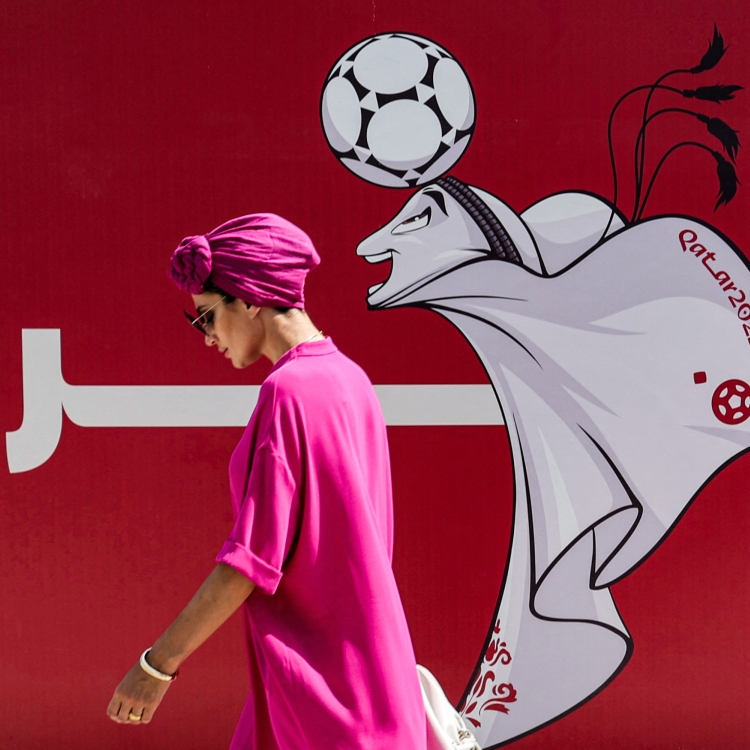magazine text block
Since her hiring in 2018, Los Angeles Times Beijing Bureau Chief Alice Su has crafted stories that deepened our understanding of China’s social, economic, and political changes under the country’s leader, Xi Jinping — who, meanwhile, has overseen a crackdown on foreign journalists working in China. Su’s work includes on-the-ground reporting of Beijing’s erasure of ethnic populations across China, including Uighurs, Mongolians, and the Hui minority; the early government missteps that contributed to the rapid and deadly spread of COVID-19; and more.
Su — winner of Asia Society’s 2021 Osborn Elliott Prize for Excellence in Journalism on Asia — spoke with Dorinda Elliott, a member of the Oz Prize jury and senior vice president and director of programs at the China Institute, about the challenges of reporting in China today.
What has it been like for journalists in China?
There were a series of escalations — and to be honest, things haven’t really cooled down. First, there was COVID-19. That was a big story, and it was intense. It was scary. But it was a story, and we could cover it.
Early in 2020, journalists started getting expelled from China. First, there were three Wall Street Journal reporters who had their visas revoked due to an opinion article in the Journal calling China the “sick man of Asia.” Then one day in March of that year, all of the American reporters for The New York Times, The Washington Post, and The Wall Street Journal were expelled at once. That caused a lot of worry in the foreign correspondents community. People were thinking, “Who’s going to be next? Is this going to escalate?” (Editor's note: In November 2021, China and the United States announced that they would loosen restrictions on journalists operating in each other's country.)
For a long time, foreign correspondents have thought that the worst thing that could happen to us is that we’d lose our visas and would have to leave. In that event, we’d actually be more worried about our sources, because they’d stay in China where much worse things could happen to them.
But in August 2020, an Australian reporter who works for CGTN, Cheng Lei, was detained on national security grounds, something most of us didn’t find out about until that September. She’s still in detention now. The details are still really unclear. Then about a week after the news came out about Cheng Lei, two Australian reporters [Bill Birtles and Mike Smith] had security officers show up at their doors in the middle of the night and tell them that they weren’t allowed to leave China — they were under an exit ban. They went to the Australian embassy and lived there for a few days. Only after the intervention of diplomats were they allowed to go back to Australia, when they told their stories.
For a lot of us, especially Americans, tensions between our country and China had recently escalated. So there was a real fear that we could become pawns in a hostage situation, and if something happened in our home country that we weren’t aware about, we could be retaliated against.
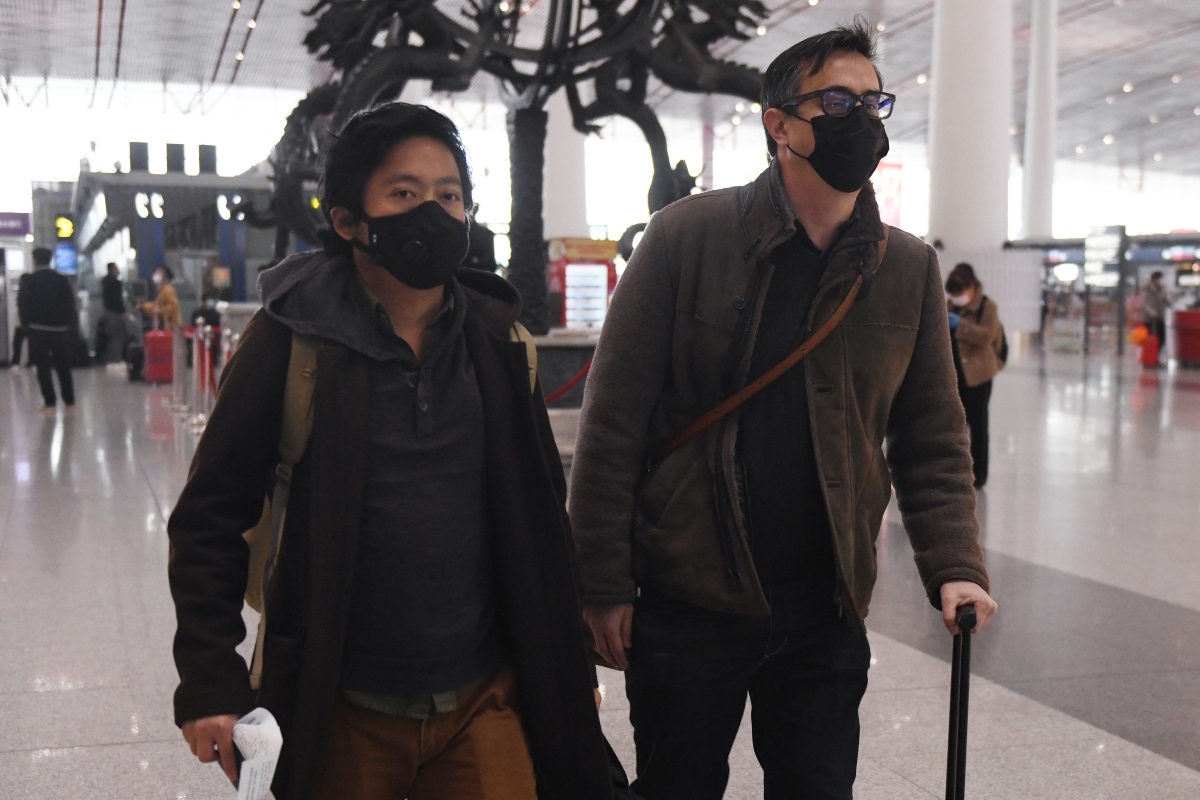
Wall Street Journal reporters Josh Chin (R) and Philip Wen walk through Beijing Capital Airport before their departure on February 24, 2020.
Greg Baker/AFP/Getty Images
magazine text block
How does your background give you a different perspective from other foreign correspondents in China?
Prior to coming to China with The Los Angeles Times on a journalist’s visa, I experienced life here as a student and then as an expat living in a foreigner’s bubble. As soon as you’re here on a journalist’s visa, the experience becomes very different — you feel like you’re walking around with a target on your back.
I see my work as understanding what’s happening in China. I want to seek accountability and do work that speaks truth to power, but I’ve never seen myself as an enemy of the authorities. At the same time, being treated as an enemy because you’re a Westerner, I think, really affects your reporting. It makes it very hard to not want to fight back.
magazine quote block
magazine text block
How does being Asian American affect your work?
I think it helps a lot. In recent years, when it’s become more dangerous for Chinese staff at news organizations to be involved in sensitive stories, and as the scope of what’s considered sensitive has continually expanded, it’s a great advantage to be able to get around on my own and not involve them. Another advantage is that I’m not noticed as easily, and people trust me faster.
But it can also be a negative. Sometimes in initial encounters with security forces, they treat me in a rougher way because they think I’m Chinese.
You can say that there are two Chinas: one in which people are satisfied and proud and support Xi Jinping because he makes them feel proud, and one in which individuals are oppressed. How do you strike the right balance between reporting on government oppression — which has certainly increased over minorities, Muslims, freethinking intellectuals, and dissidents over recent years — and the “other” China, which is the China that most people live in?
I struggle with that a lot. As a one-person bureau with limited capacity, I have to decide what to prioritize. I felt that my purpose here was clarified in the last year, when so many other journalists had to leave. I decided that I needed to focus on stories that would not have been told if not by a foreigner or by someone who’s here on the ground. I do worry that if L.A. Times readers who don’t know anything about China except from what they read in my stories actually visited the country, they might be surprised. “You’re always writing about these oppressed minorities, and how there’s no freedom of speech, but I just see people doing yoga in the park, packed cafes and bars, and high-rises in Shanghai,” they’d say. There can be a big gap there.
Is that China that visitors see a false China?
It’s not a false China. It’s the China that many people live in. I’m trying to plan stories where I get across that there are two Chinas, two worlds that you live in. Even we journalists live in the two Chinas: One moment we’re talking with someone who’s under house arrest, and the next we’re going out to dinner and having a normal time. But what I want to convey in my stories is that what matters are those moments when people drop from one China to the other, and typically that occurs when something happens to them or their family. It doesn’t have to be that they went out for a protest. It can be that there was an explosion near their home, or that they were in a city that got suddenly locked down because of the pandemic and now their mom is dying. And the government hotlines aren’t working. And when they complain about it online, people tell them “you must be backed by foreign forces.”
I’ve done so many interviews in the past few years with people who have this defensive, self-explaining tendency to say, “You know, I’m a good citizen. I’ve never done anything wrong. And I’ve always believed everything I see on CCTV.” When there was the horrible ultramarathon race in Gansu Province where 21 people died, a young girl who lost her father went on Sina Weibo [China’s Twitter] and asked for help. “I need to know what happened to my dad,” she said. People attacked her. “Why are you complaining? Are foreign forces behind you?”
A lot of people in China, perhaps a majority, are basically satisfied, and see dissidents or people who complain and petition the government as being crazy and foreign-backed. The satisfied majority feels they don’t have to think about these people, because their own lives are getting better and better. But when a person becomes a victim, they become a target of stability maintenance. That’s when they realize that it’s important to protect individuals — that individuals matter. Whereas before, they’d think that what mattered was just what the majority wanted.
I try to capture both worlds. And what I find interesting is the psychology — how a person can change based on what they’ve experienced.
We often think in the United States that people should, or inevitably will, follow an American system of government. But it’s not happening. You have a recent study that shows that 95% of Chinese people are happy with their government. How do you make sense of this?
Well first of all, I don’t think I can predict what’s going to happen. I’ve cited that survey in one of my stories, but I’d take it with a grain of salt. Something I think about a lot is this: Chinese people are smart. Chinese people are political survivors. They know what’s beneficial and what has absolutely no benefit. And talking to a foreign journalist has no benefit for most Chinese people. Answering a survey in which you say you’re not satisfied with the government has no benefit.
This conversation has been edited for clarity and length.
